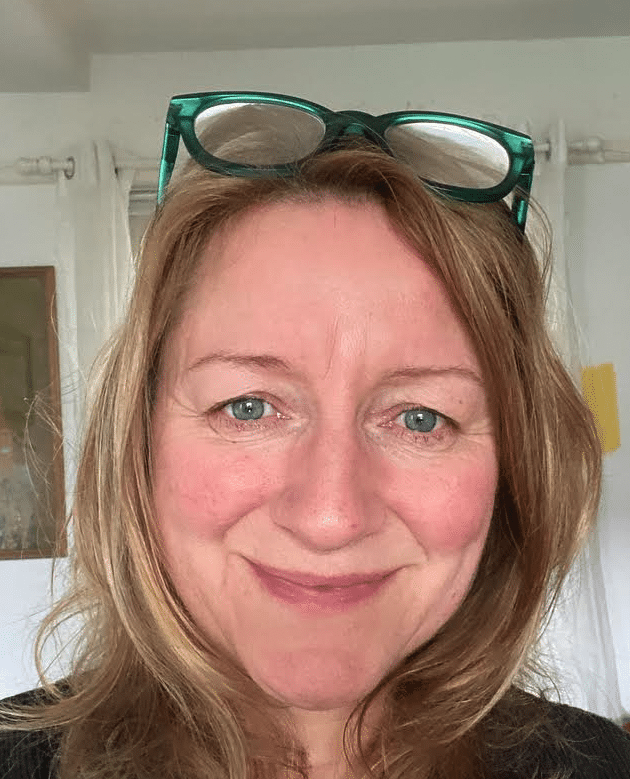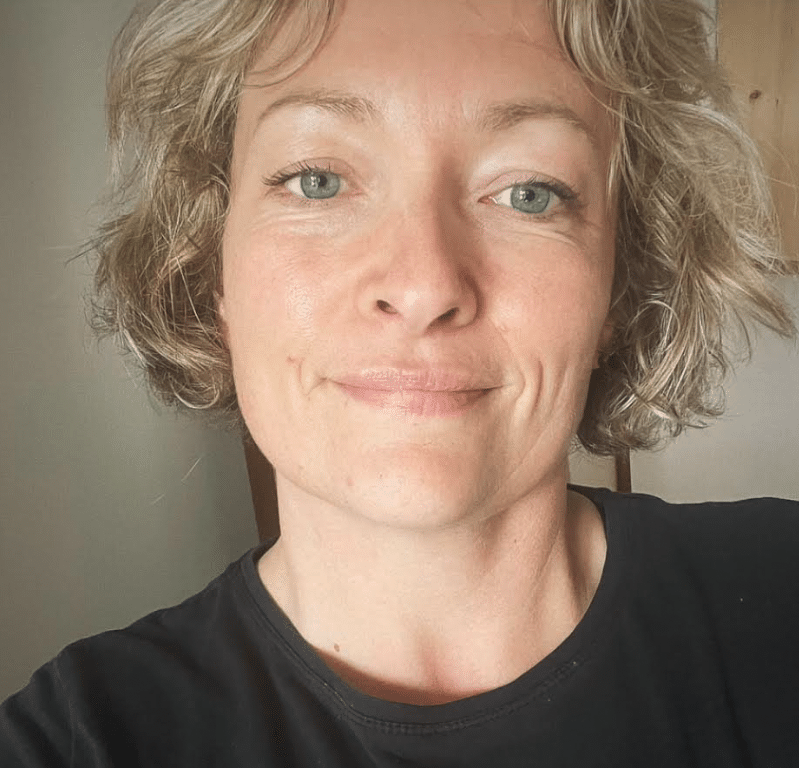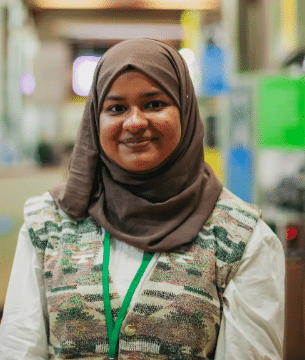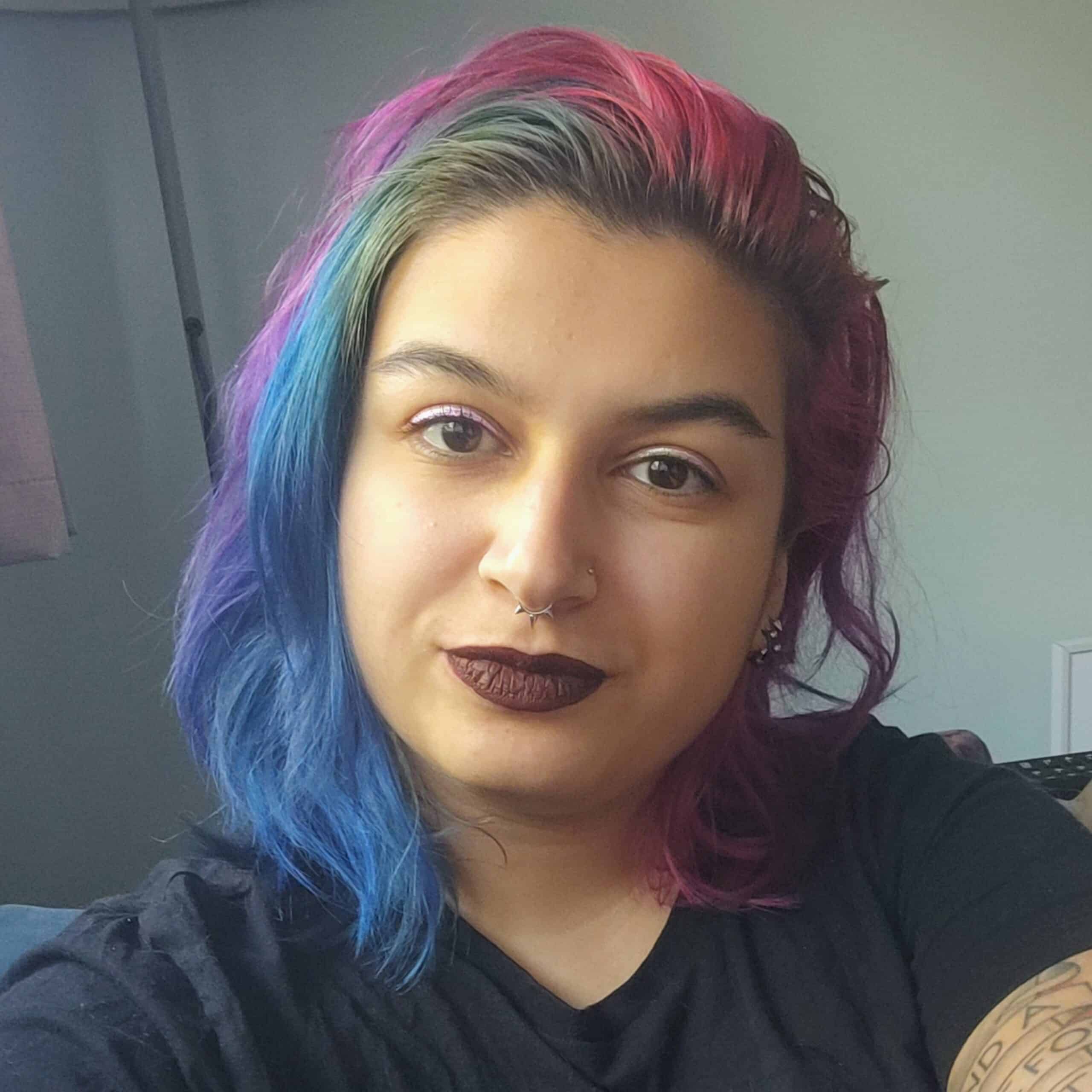Overview
Extractive energy, food and financial systems are driving climate breakdown, the defining issue of our time.
We’re tackling this by exposing who owns and controls these systems, mobilising impacted communities and envisioning sustainable and socially just alternatives. Drawing on Platform’s unique 40-year history, our team of campaigners, researchers and artists are working across the UK to transform the political, cultural and social conditions in which polluting industries operate.
Our work focusses on:
Community
Building support for public ownership and democratic control
Energy
Emboldening impacted communities and workers to lead a just transition
Finance
Interrupting the flow of money, power and political influence to fossil fuel companies
Culture
Harnessing the power of arts and sports to build solidarity, imagine alternatives to injustice and inspire social transformation
Liberation
Centring compassion, care and liberation in our work and workplace.
Team
-

Tanya Rideout
People and Process Manager (she/her)
Tanya has spent two decades helping NGOs transition to more democratic structures and processes – with a focus class, mental health and neurodivergence. She is currently writing her PhD on the history of the coal gas industry and its impacts in working-class communities, within the Future Societies Programme at Anglia Ruskin University
-

Ceri Littlechild
Finance and Fundraising Development Manager (she/they)
Ceri is based in Cambridgeshire and has recently joined Platform to work on finance development and fundraising coordination across and with the team. Ceri has a long background in organising within various charities supporting the arts, the environment and human rights. And holds a fundamental belief in putting people and the planet before the pursuit of profit
-

Sumayyah Zannanth
Food Justice Campaigner (she/her)
Sumayyah works on our food and land justice project in her community in Tower Hamlets. She has a background in research, community organising and creative storytelling and facilitation. Alongside her work at Platform, she is also part of Land in Our Names, a land and racial justice collective, and the Nejma Collective, a prison abolitionist group.
-

Carys Boughton
Fossil Free Parliament campaigner (she/they)
Carys is based in London and campaigns to cut the flow of political and financial power to the fossil fuel industry. Alongside her work at Platform, she’s an illustrator creating climate and social justice-themed comics.
-

Zainabb Hull
Fossil Free Campaigner (they/them)
Zainabb is a queer, disabled, brown Muslim femme from London who works on Fossil Free campaigning at Platform. Alongside their work at Platform, Zainabb is a writer, editor, and grassroots organiser focused on anti-colonialism, disability justice, and celebrating Black and brown trans joy.
-

Gabrielle Jeliazkov
Organising and Advocacy Lead (she/her)
Gaby previously worked on Platform’s just transition project, where she co-authored the Our Power report. She is originally from Canada but has lived in the UK since 2018, including in London and Glasgow. She has a background in trade union organising, community organising and campaigning.
-

Ruby Earle
Just Transition Campaigner (she/her)
Ruby is based in London and leads the Our Power project – working with oil and gas workers and unions to campaign for a worker-led just and transformative transition away from fossil fuels in the North Sea. Ruby has a background in politics, political advocacy, movement-building and campaigning.
-

Radhika Jani
Arts and Food Justice Coordinator (she/her)
Radhika works with communities in Tower Hamlets to dream up alternative food systems. She has a background in community arts & writing, and leads on the project’s creative strand to tell local food stories.
-

Lucy Meredith
Energy Campaigner (SHE/HER)
Lucy has joined Platform as the Energy transition Partner for the Climate Action Leeds (CAL) project. She works with communities and organisations to help feed into Leeds’ plan for a just energy transition and support local community energy projects. Lucy is also an eco-artist.
-

James Marriott
Artist Activist (he/him)
James works on our project Crude Britannia, using literature, film, theatre & live art to explore how oil has shaped the UK’s economy, politics and culture over the past century. He’s co-author of several books – The Next Gulf (2005), The Oil Road (2012) and Crude Britannia (2021).
-

Marianne Brooker
Communications Manager (she/her)
Marianne is based in Bristol, where she works on strategic communications for our campaigns across press and digital. She has an arts PhD and a background in research, teaching and editorial work.
T: 07563 753 760
-

Flick Monk
Community and Public Energy Campaigner (she/her)
Flick is based in Glasgow and grew up up in rural Galloway. She previously worked at Friends of the Earth Scotland on fracking and divestment. She has an MSc in Environmental Studies from Antioch University New England where she researched community energy.
-

Rob Noyes
Divest Campaigner & Researcher (he/him)
Rob is based in London and works in our finance campaign as coordinator of UK Divest. He is also a Director of Platform’s non-charitable organisation, Energy Democracy Project.
Workplace
We’re committed to developing ways of working that centre compassion, care and liberation.
Along with achieving our campaign goals, we’re working to create and implement an internal structure that holds us accountable to our principles and also meets our capacity needs.
Consensus and collectivity
We aim to work against hierarchies in how we run Platform and use consensus-based decision-making to structure our collective meetings. We have a clear and open relationship between our Trustees and our staff team. We place equal value on the work of all our staff members, regardless of their role.
Socially just pay
A key part of that equal value is our Social Justice Waging System for salaried staff. Under this pioneering policy, staff get paid the same core salary rate which is adjusted according to a range of factors, including how many dependents or how much inherited wealth they have, and their length of service at Platform. This policy is one part of a continual process of addressing issues of equality, power and privilege within the organisation and wider society.
Staffing structure
We have a permanent, core team of campaigners who are also actively and collectively engaged in running Platform. They’re supported by a permanent core team who coordinate our finance, HR, communications, operations and organisational development functions. We also work with organisers and researchers employed for a fixed term on particular campaigns.
All of our permanent staff team are involved in the collective running of Platform: we each undertake at least 1 day of collective management work per week alongside our project work. People working on a fixed-term basis aren’t expected to do this work, but are welcome to attend our monthly collective meetings. All staff – whether or not they engage in collective management – are paid according to the Socially Just Waging system.
Platform has a rotating Management Group of three permanent staff members who oversee the day-to-day running of Platform and meet weekly. We encourage new staff members to join after their first six months and each member serves up to one year at a time.
Our working groups that support the running of Platform are:
- Management Group
- Finance
- HR
- Fundraising
- Anti-oppression
Platform has a Board of Trustees who advise and support the Management Group and the whole organisation through quarterly meetings.
Methods & Principles
Our work is deeply rooted in our principles. What we believe in affects what we do and also how we do it.
We believe in
Social Justice: An equitable distribution of wealth, resources and social and political opportunities for everyone.
Climate Justice: Climate change is an economic, political and ethical issue; its different impacts across the world are rooted in colonialism and racialised, classed and gendered inequality. Action on climate change must tackle political and economic inequalities at the same time. Action should include different responsibilities for countries in the Global North and South and an end to profit-driven energy production. We aim for our work to be against extractivism in all its forms.
International solidarity: Taking actions to show solidarity and support those living in states outside the UK who are struggling against oppression or injustice. We see this as particularly important in contexts where the UK has had an impact historically or is currently involved in neo-colonial endeavours.
Economic system change: The social and economic systems we currently have in place prevent most people – particularly working class, marginalised and BIPOC folks – from accessing the resources, autonomy and the power they need to live safe, healthy and fulfilling lives. We work with communities and allies to change these systems and re-distribute power and resources more equitably.
Some of the approaches we bring to our work
Arts and storytelling: We believe in the unique power of the arts to change hearts and minds and shift cultural narratives in ways that can create meaningful change.
Decoloniality: We acknowledge the impact of colonialism and imperialism on our lives, society and the systems we’ve inherited (capitalism, institutional racism, patriarchy). Our work strives to deeply reflect on this impact and dismantle the power relations that our shared colonial history cements.
Compassionate organising: We organise for justice in ways that centre and celebrate our ability to feel whole, joyful, playful, and loving. As we campaign to protect lives and livelihoods, we make sure to honour and respect our own.
Internationalism: Our actions in the UK impact and are interlinked with struggles for liberation and equity across the world, especially in the Global South.
Anti-racism: We acknowledge the impact of white supremacy on our lives, society and the systems we’ve inherited. Our work strives to support the unlearning and undoing of the structural domination of white people over groups that have been racially othered.
Place-based work & localism: A place-based understanding allows issues like economic inequality, food security and energy security to be addressed at a local level, allowing for more focused and relevant campaigning and organising.
This ties in closely with our emphasis on building power with folks and communities who are under-represented in institutions and positions of power.
Community power: Communities – whether defined by place or identity – are a very important level for organising. We aim to work with people and groups most affected by the issues at stake to build the right demands and visions for the futures of our communities.
Participatory research: Policies and research must be made in direct collaboration with those most concerned and most impacted by the issues at stake.
Building new alternatives now: Our approach to addressing the climate crisis is one that focuses on the practical solutions that we can build and apply now.
Funding
Platform is funded primarily through grants by philanthropic trusts and foundations, as well as from donations from individuals who want to support our work. We do not accept funding from corporations or banks that do not align with our mission, in line with our ethical investment policy.
If you’d like to donate to help us grow, please click here.
Our current funders include:
Arts Council of England (NPO)
Climate Change Collaboration
Energy Transition Fund (ETF)
ESRC (through University of Durham)
Esmee Fairbairn
Joseph Rowntree Charitable Trust
Kreitman Foundation
Lankelly Chase
Leeds Tidal contract (funded by Big Lottery)
Network for Social Change
Open Society Europe (OSIFE)
Paul Hamlyn Foundation
Polden Puckham Charitable Foundation
Roddick Foundation
Solberga
Sunrise Project
Uplift
WEN contract (funded by National Lottery Climate Action Fund)